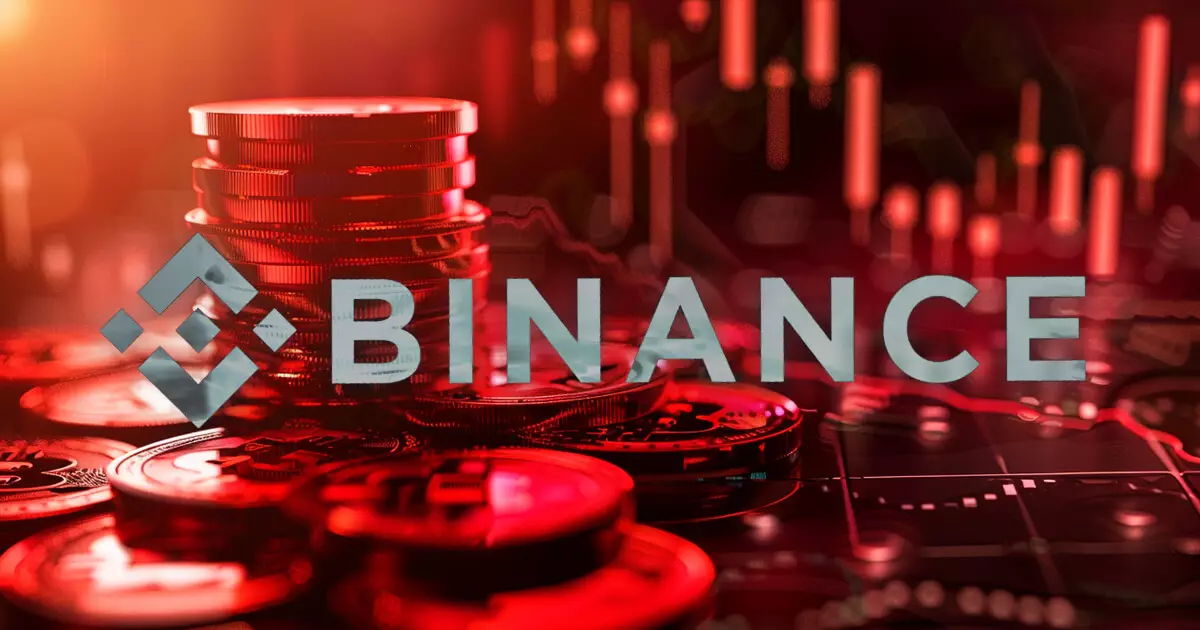In recent weeks, the crypto community has been abuzz with discussions surrounding the controversial listings of Solana-based memecoins on Binance, the largest cryptocurrency exchange by trading volume. Two particular coins, The AI Prophecy (ACT) and Peanut the Squirrel (PNUT), drew attention after they were listed on November 11, leading to dramatic surges in their market capitalizations. ACT skyrocketed over 1,000%, reaching a staggering market cap of above $400 million, while PNUT enjoyed a 100% increase in value. Such explosive growth in such a short time has led to skepticism within the crypto community, with accusations of potential pump-and-dump schemes surfacing almost immediately after the listings.
Leonidas, co-founder of the Bitcoin Ordinals explorer Ord.io, has publicly voiced concerns regarding Binance’s approach to listing these low-market-cap tokens. He initiated a petition to challenge Binance’s listing strategies, arguing that they create an environment ripe for manipulation. He suggested that these listings disproportionately benefit a select group of insiders—such as venture capitalists and market makers—at the expense of retail investors. Leonidas alleged that the crypto exchange appears to be targeting “dead” memecoins, which are often controlled by a small number of stakeholders capable of paying hefty listing fees, which Binance allegedly cashes in on by selling off high quantities at inflated prices. The call for transparency in Binance’s operational methods reflects broader issues in the cryptocurrency space, where fairness and ethics are frequently scrutinized.
Historically, Binance has enforced stringent listing standards, aimed at ensuring that tokens presented on its platform are viable and potentially profitable for investors. However, recent trends indicate that the exchange may be relaxing these standards and allowing the listing of more speculative assets. Loopify, a prominent figure in the crypto community and founder of a notable game studio, conjectured that this shift could be an attempt to retain users who might otherwise migrate to decentralized exchanges. The implications of this potential strategy signal not only a change in Binance’s operational philosophy but also a recognition of the growing popularity of decentralized finance (DeFi) solutions that provide users with more autonomy and fewer regulations.
The volatility of memecoins has become a defining feature of their trading dynamics, particularly on platforms like Binance. An analysis by on-chain analyst Ai_9684xtpa revealed that a striking 80% of the memecoins listed by Binance in 2024 saw significant price increases shortly after their listings. Furthermore, 60% of these coins were based on the Solana blockchain, while others originated from Ethereum and Binance’s own BNB Smart Chain. The lack of a minimum market cap requirement for these memecoins raises serious questions about the evaluation criteria that govern their inclusion on the platform. It appears that metrics such as community engagement and viral potential may be more influential than traditional metrics like market capitalization.
The Ethical Implications and Recommendations
As the debate continues, the ethical implications of Binance’s listing practices remain a hot topic. Critics argue that if exchanges prioritize profit over investor protection, they may inadvertently become facilitators of speculative trading that preys on uninformed investors. There is also a growing sentiment that exchanges should be held to a higher standard of accountability. Some community members have called for regulatory measures to ensure all exchanges operate transparently, particularly concerning listing fees, token sales, and the financial interests of insiders involved.
The rise of memecoins and their listings on high-profile exchanges like Binance exemplifies a significant shift in the cryptocurrency landscape. However, as excitement builds around these tokens, so too do the ethical dilemmas surrounding their trading. Moving forward, an imperative exists for comprehensive regulatory frameworks and greater transparency to protect investors and foster a fairer, more viable market environment.

